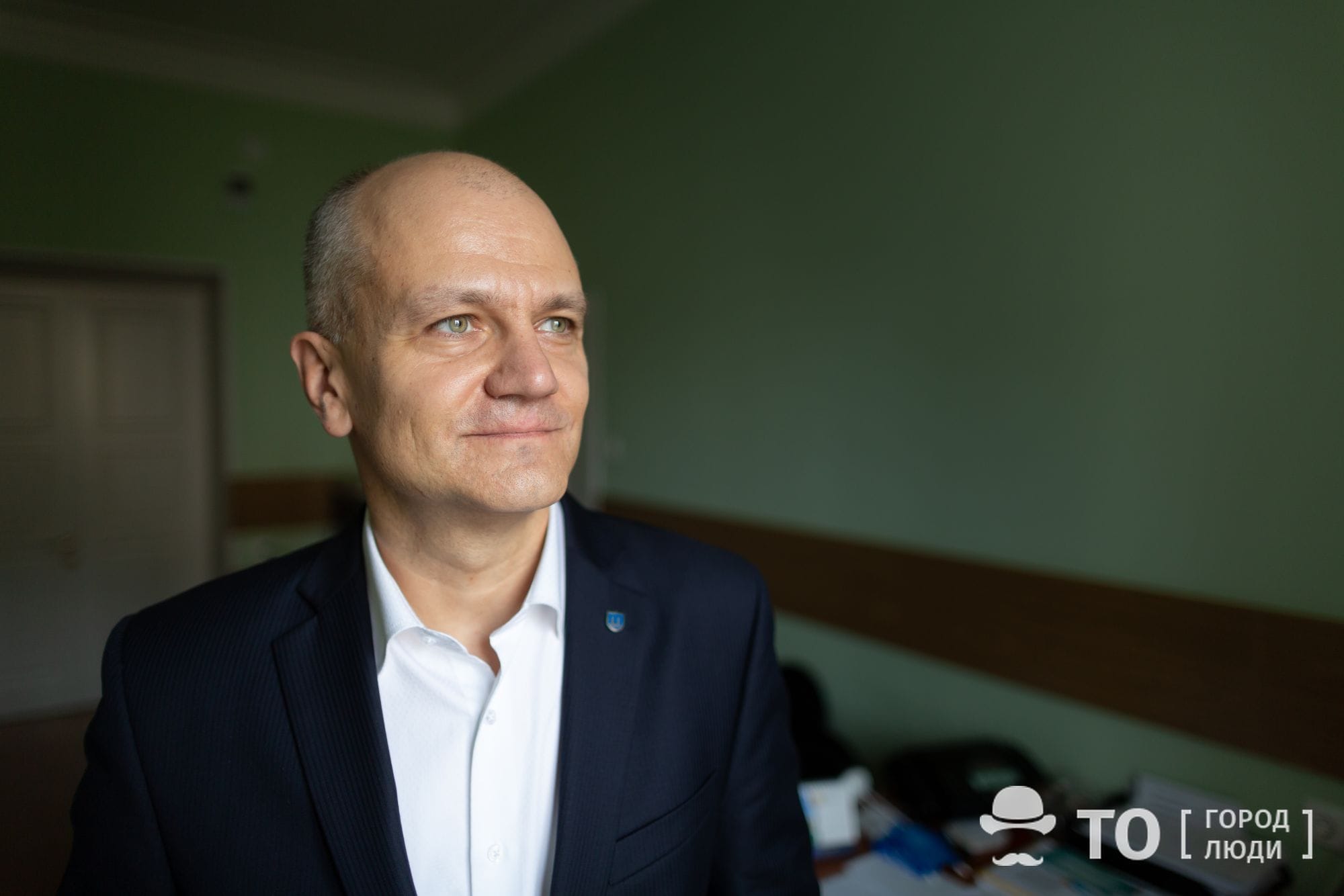Siberian Greenfield. Evgeny Lukov, Dean of the Faculty of Historical and Political Sciences of TSU, in regards to new concept of education and space of experiments
We keep proceeding with a series of publications about the “Siberian Greenfield” – the space of experiments, which is currently unfolding at the Tomsk State University. The Faculty of Historical and Political Sciences (FIPN) has constituted one of its important sites.
So now Evgeny Lukov, the Faculty Dean, is telling us how it has come about that the “classical education” faculty becoming a scene of innovation and what makes it attractive for students from all over the world.
Green Field of Experiments
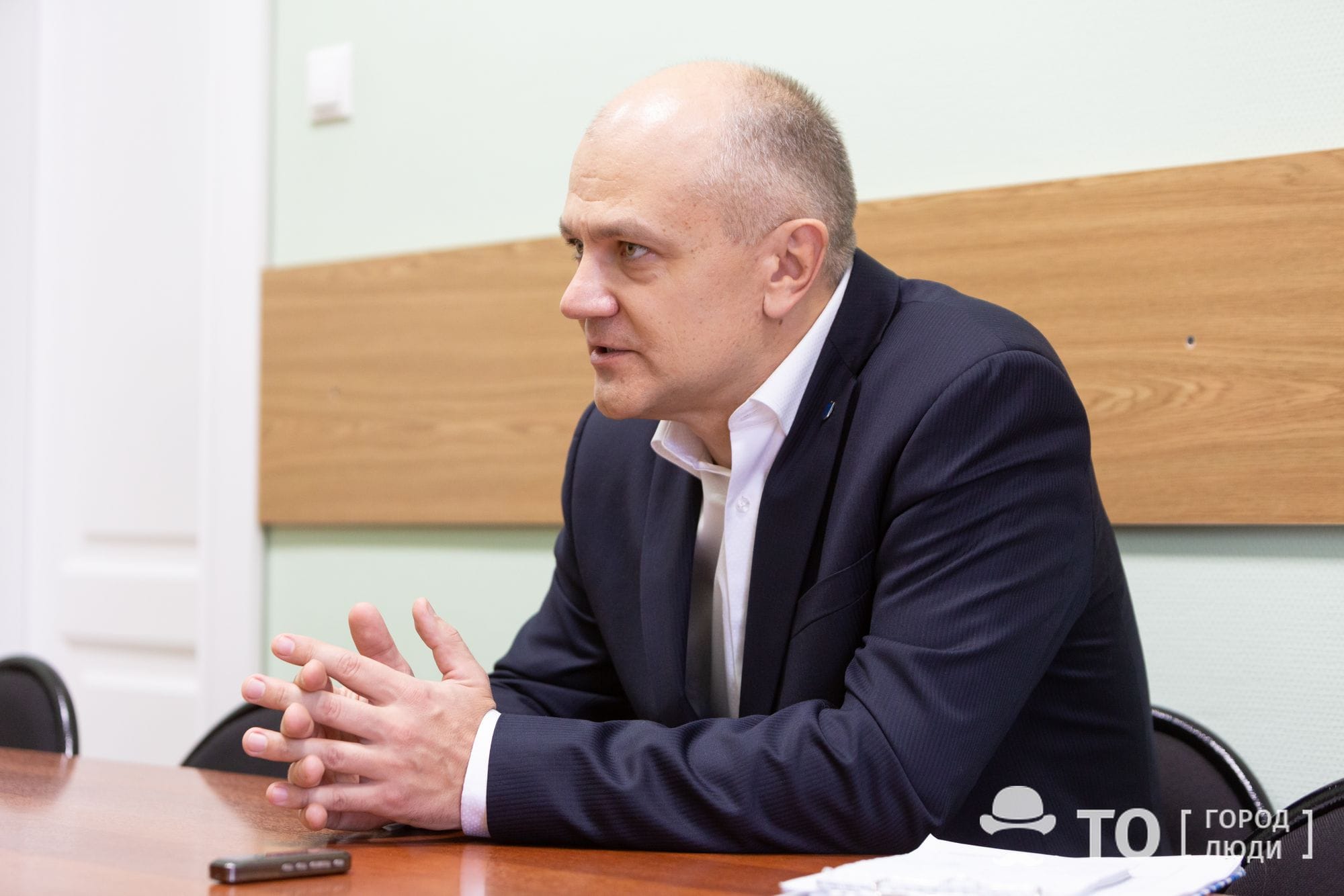
The word greenfield has one of its definitions derived from the economy sphere, where this notion implies that something fundamentally new is being built on a new basis – on the “green field”. This is opposed by brownfield, which means that the same new thing arises on a foundation of an already existing structure.
Sewing a new dress is easier than remaking an old one. Developing and running microchip production from scratch is easier than remodeling for this purpose a heavy infrastructure of an indicative Detroit car industry.
However, for universities it doesn’t work that way, as they have been existed for too long and perform too many functions, Evgeny Lukov says.
“Hardly advisable it is to close Tomsk University and erect a completely new one across the river. We will build the same thing, except in a different building, won’t we? Also, if we start rearranging the entire university straight away, it may collapse at some point. Something would be poorly thought through, would be overlooked…”
As an example, the Dean makes reference to a number of universities having been intended to be remodeled after corporations. So, all professors in charge were replaced by business managers, and the latter put rigid KPIs to employees. But the people working in universities are special; they are researchers by nature, and performance, career and even money are not that crucial for them, as they are primarily driven by their desire to explore and learn new things. So what these people having made up the “soul” of the university did was simply quit their jobs. Such universities have no longer been universities, but have never become corporations.
 “At the same time, it’s clear that we have to change, as changes are now required both by the external environment and our students,” Lukov continues. “So, how can it be done without breaking the old thing? A special zone is delimited, a university inside a university, metaphorically speaking, with different set of norms immediately introduced within. For example, we give no lectures now, only seminars; we apply a methodology of practice-oriented training, when our students devote half of their study time to industrial work placement, and so on. This is what they call greenfield, a terrain of experiments.
“At the same time, it’s clear that we have to change, as changes are now required both by the external environment and our students,” Lukov continues. “So, how can it be done without breaking the old thing? A special zone is delimited, a university inside a university, metaphorically speaking, with different set of norms immediately introduced within. For example, we give no lectures now, only seminars; we apply a methodology of practice-oriented training, when our students devote half of their study time to industrial work placement, and so on. This is what they call greenfield, a terrain of experiments.
What Is Going on in a “Sandbox”?
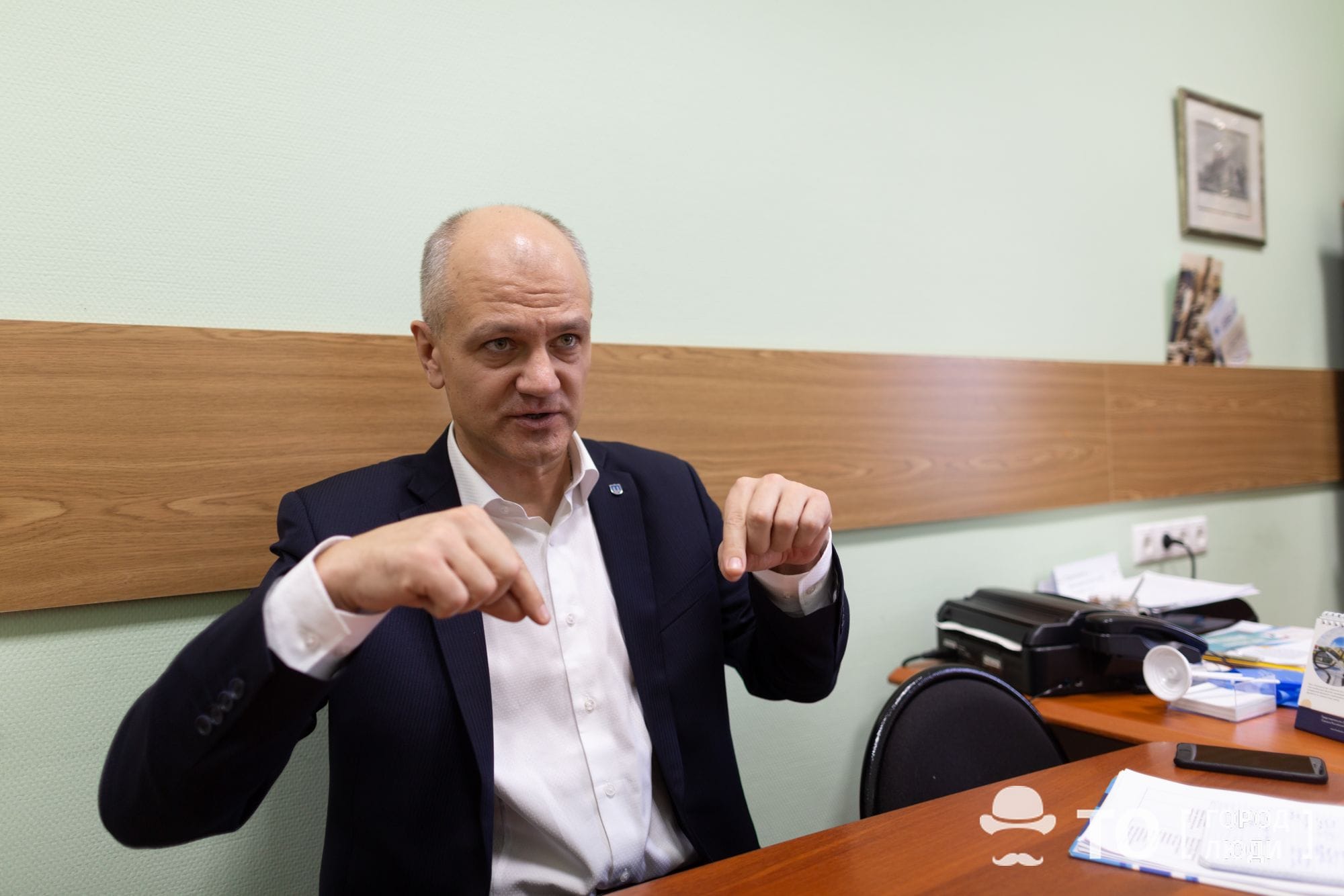
At different levels of the university structure, “green” islands are appearing. They can take form of an educational programme, a laboratory, or even a whole faculty. For example, the last example includes the Graduate School of IT created by Oleg Zmeev, Graduate School of Journalism having appeared thanks to Ilya Myasnikov; the same refers to everything being introduced at FIPN, owing to Evgeny Lukov, as well as at TSU as a whole, owing to many more people exploring, for a variety of reasons, new operational formats. The university, at the same time, keeps fulfilling the tasks imposed thereon, undisturbed.
“Greenfield is rather a virtual substance, a ‘sandbox’ we also call it: you can try it, play, shape some sand cakes,” Lukov says. “When there is a holistic view of the way something new should be arranged, we begin extending this mechanism to the entire university. Every time it fails to work, we try again. However, every single one of such experiments is preceded by massive preparatory work – strategic sessions, permanent project groups, faculty board discussions, and so on.”
Among the experiments associated with greenfield, there is so-called “Wide Undergraduate Degree” project, which FIPN has been elaborating for the third year and now is striving to have up and running as from September 2020. The project essence is that freshmen of all seven specialties available at the faculty will study the same educational courses for a whole academic year. That is, they will neither start specializing in their narrow fields of study in the first half-year, nor be overloaded with incomprehensible theoretical issues anymore and left unattended – and then may the fittest survive. According to the project, the first year will be focused on helping students develop foundations of various types of thinking – systemic, critical, and research – via new forms of activity. At the same time, throughout this year, the students will be free to set their sights on the chosen specialty and even change it, comprehend their personal goals and shape their individual educational trajectories accordingly. In all this, they will be assisted by tutors, whose appearance at the university constitutes another greenfield project.
“In relation to a student, ‘Wide Undergraduate Degree’ represents a system more humane, as it provides everyone with an opportunity to open up and express oneself,” Lukov explains. “It has nothing in common with a ‘funnel’, which Soviet freshmen had to pass through: failed you have – expelled you are. Here, students are to be given an opportunity to choose a different trajectory. If you realize you’re poorly fit to science, then go into teaching. This does not mean that working with children is easier, but it is just a different kind of work.”
Even providing in-depth studying of English at non-linguistic faculties has recently been a greenfield project. Now having four double classes of English per week is a common standard for the students of the Faculty of Historical and Political Sciences. At the same time, the prevailing language of teaching foreign students disciplines other than English is Russian. In some cases, this practice is fully justified: for example, you cannot study regional studies of Russia without being able to speak Russian. But now, in order to capture students from all over the world and involve them in mastering advanced research programmes in physical, mathematical and natural fields, the university must deliver education in English. Despite sometimes the purpose of giving lectures in another language with no foreign students in the group may seem challenging to understand.
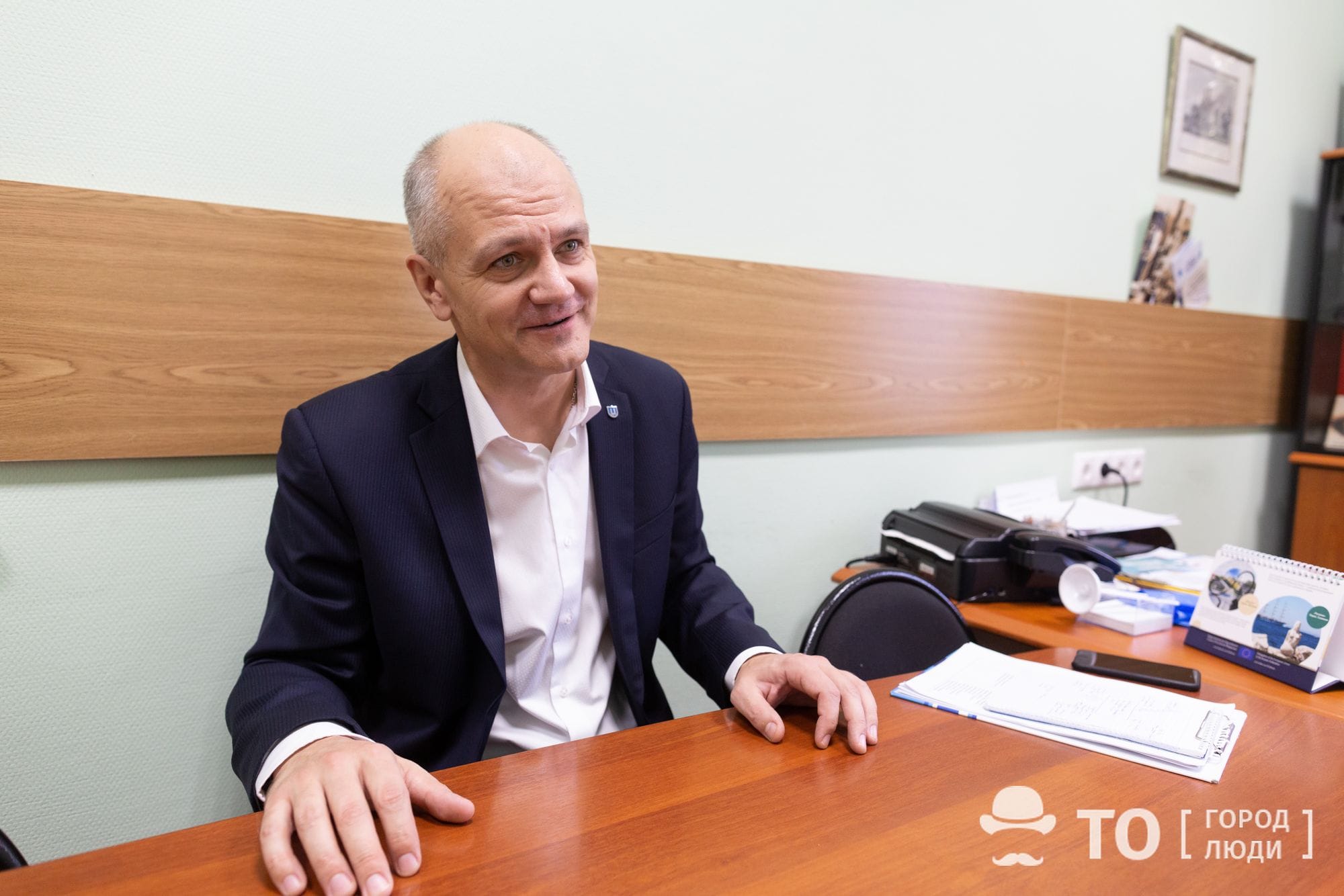 “Sometimes a lecturer asks me ‘Having a Russian-speaking audience in the room, why should I speak English with them?’”, Lukov comments. “But, firstly, we teach the Russian-speaking audience to speak English for three years as well; and secondly, in case a foreign student comes to you tomorrow, you will painfully tell him or her something in bad English, won’t you? So you practice using “white mice”, I mean our students who do not understand English well yet, you start giving them lectures in bad English, and then all of you will gradually improve your skills. It can be difficult to explain, and it won’t happen until we set the standards; but in a few years, every single lecturer should give classes in English in some part of the university. This will be greenfield.
“Sometimes a lecturer asks me ‘Having a Russian-speaking audience in the room, why should I speak English with them?’”, Lukov comments. “But, firstly, we teach the Russian-speaking audience to speak English for three years as well; and secondly, in case a foreign student comes to you tomorrow, you will painfully tell him or her something in bad English, won’t you? So you practice using “white mice”, I mean our students who do not understand English well yet, you start giving them lectures in bad English, and then all of you will gradually improve your skills. It can be difficult to explain, and it won’t happen until we set the standards; but in a few years, every single lecturer should give classes in English in some part of the university. This will be greenfield.
The education export is a greenfield project as well, since work with foreigners is being built on new foundations. By the number of foreign students, the Faculty of Historical and Political Sciences holds the top spot among the TSU faculties. Today, 111 citizens of the Southeast Asia and even the European Union countries study here. Although, in this regard, I ought to highlight the great work of the International Division personnel, as they promote the faculty programmes at various sites around the world. This creates the TSU overall image.”
Funds and Friends
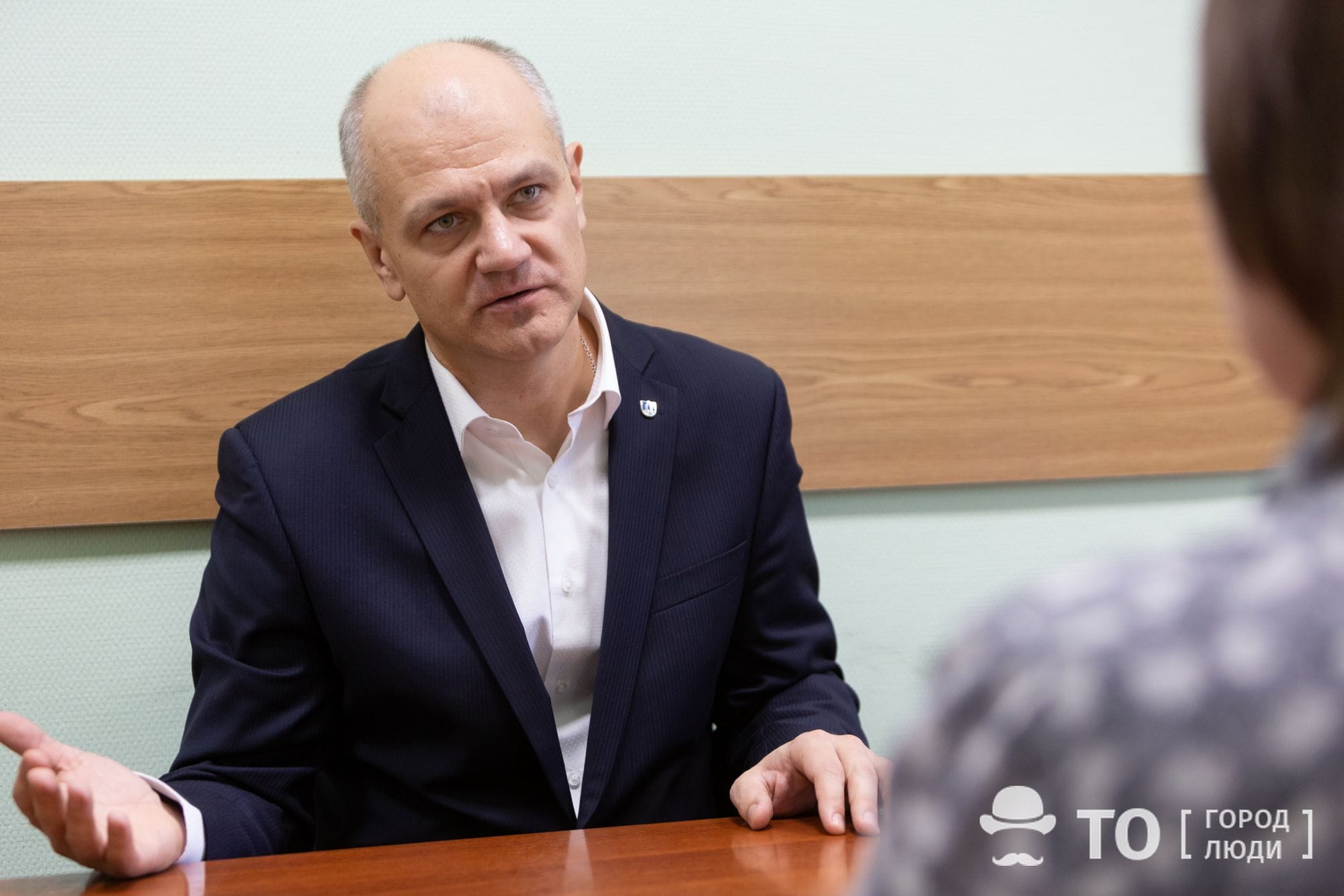
“Perhaps, I will surprise you a bit, but having focused on foreign citizens, we are to have the professional qualification of our students sharply increased,” the Dean explains the reason why the faculty enrolls a large number of foreigners. “There is no national labor market anymore; in the modern world this market is global. Therefore, if we focus only on the domestic market, then our students will likely be qualitatively worse trained than other potential employees in the indicative global market. The desire to attract talented applicants from all over the world makes us study and use the best educational practices adopted by universities in other countries.”
There are two more reasons making capturing foreign students essential for TSU (and for Russian higher education system in general). The first one is money. All foreign citizens study in Russia on a paid basis under a quota from the Ministry of Education, even though classes are free for a student themselves. Education at Tomsk State University costs from two to three thousand dollars a year; so, in addition to providing direct income to the university, the education export constitutes a regional income factor.
“I’ve come across statistics showing that in Russia every student brings the relevant city about a million rubles a year,” Lukov says. “Students pay for housing, they buy food and clothing, travel by public transport, go to night clubs, consume alcohol – all this is calculated. Of course, living in Tomsk is cheaper than in capital cities, but still, for our city this is rather a decent business than a burden. The governor has recently said that the Tomsk Oblast has earned more money than any other one, but all taxes have been directed to the federal budget, while these taxes we will retain.”
The second reason is not that easy to calculate, but in the long run it is of even more importance than the first one. By teaching foreign students, Russia makes friends – in the broadest sense of the word. There was a good reason why the Soviet Union, apart from selling weapons and nuclear power plants, also trained, at universities and military schools, qualified personnel for these technologies. Up till now Russia is warmly welcomed in certain states for this exact reason: once upon a time, their today’s decision-makers have studied here.
“People, as a rule, are quite well disposed towards the country where they have received their education”, Evgeny Lukov says. “Someday today’s students will become businessmen and politicians, and then for Russian business and the Russian government it will be much more advantageous to interact with them. I prefer not to call them ‘agents of influence’, since this notion has some slightly negative shades of meaning, but in general scope these people will be more comfortable and gainful to cooperate with.”
New HistFac
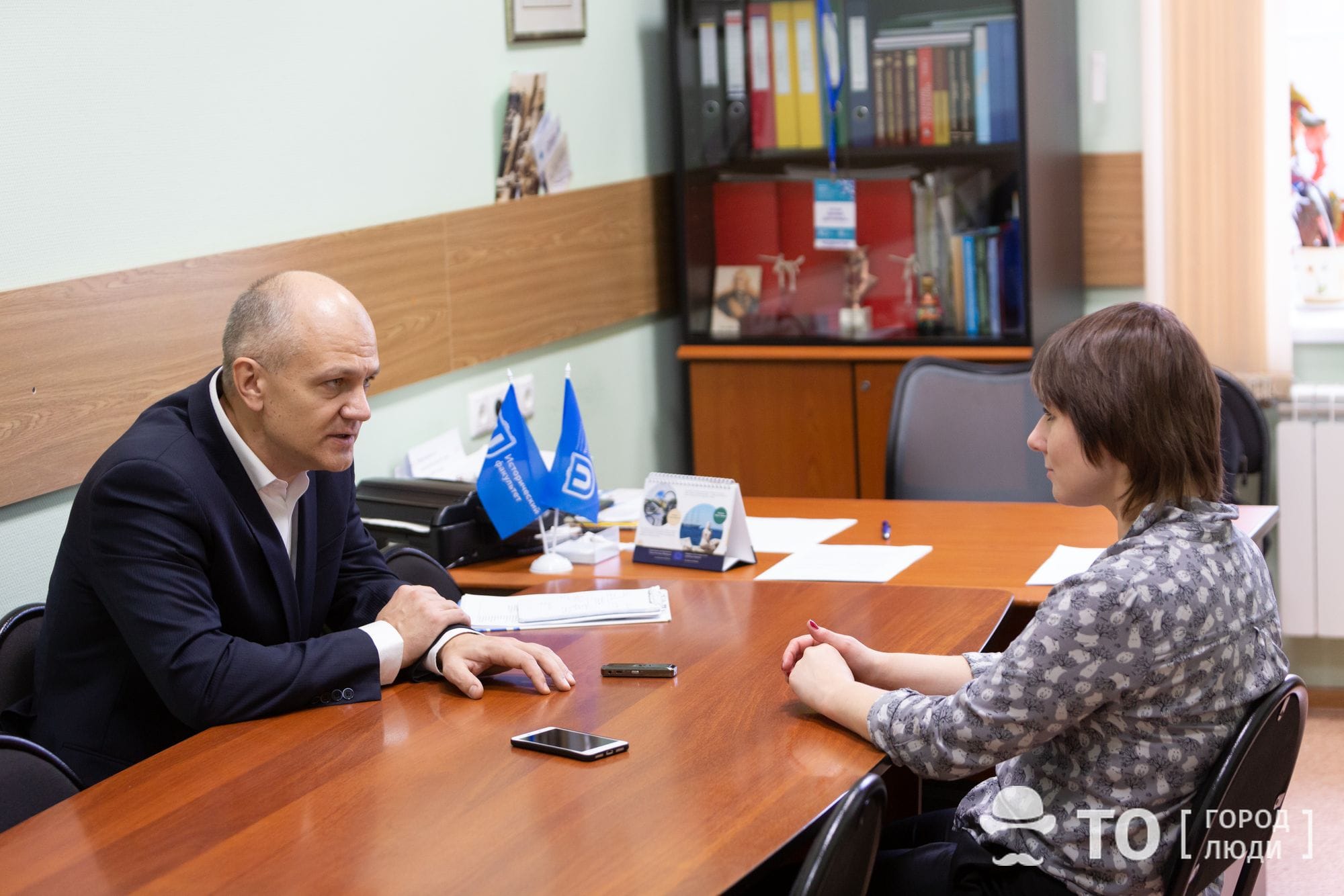
FIPN mostly hosts students from Southeast Asian countries, namely China, Laos, and Vietnam. Western students – from the USA and the EU countries – are much smaller in numbers, but they are also here.
Three specialties in demand among foreigners are “International Relations”, “International Area Studies” and “Russian Area Studies”, although an interest in the specialty “Document and Archive Science” has recently appeared as well, and the specialty “History” is attractive for foreign postgraduate students.
The International Relations students primarily specialize in studying the European Union, and few competitors TSU has beyond the Urals. Logically, the best way to study the European Union is to do this within the EU borders, but not to everyone this is accessible. In Siberia, there is an opportunity to study the EU on quota basis (free for a student), for less money and with poor command of English; and since TSU is a strong and renowned university, it often becomes a springboard for further mastering at European universities at the Master’s level.
The International Area Studies specialty mainly focuses on three countries, which are China, Japan and South Korea. At TSU, Chinese culture and language are also promoted by the Confucius Institute, and this raises the university status in area studies of China as well.
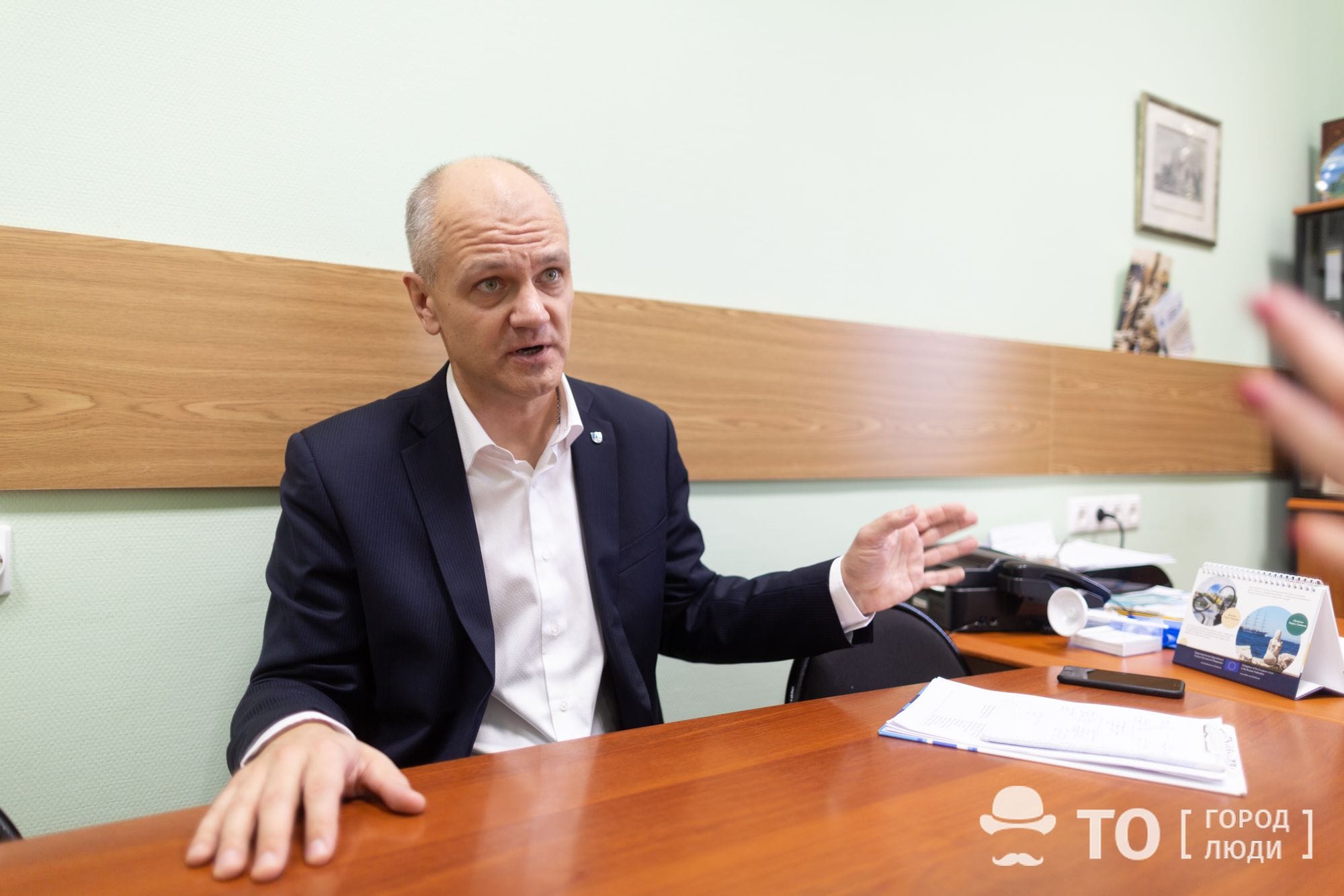 “Of course, China is best studied in China as well,” Lukov remarks. “We have found out that our Bachelor having graduated from ‘International Area Studies’ do not apply for our Master’s programmes, but continue their education at Chinese universities instead, since their command of the language is excellent. But there are still many places in Siberia where undergraduate courses do not provide that prominent level of the Chinese language mastering, and they lack such connections with China that we enjoy through the Confucius Institute. This is our competitive advantage: we can gather Bachelor degree applicants throughout Siberia and the European Russia, help them ‘hone’ their language skills through the first educational year, and in the second year send them to China through internship or double diploma programmes.”
“Of course, China is best studied in China as well,” Lukov remarks. “We have found out that our Bachelor having graduated from ‘International Area Studies’ do not apply for our Master’s programmes, but continue their education at Chinese universities instead, since their command of the language is excellent. But there are still many places in Siberia where undergraduate courses do not provide that prominent level of the Chinese language mastering, and they lack such connections with China that we enjoy through the Confucius Institute. This is our competitive advantage: we can gather Bachelor degree applicants throughout Siberia and the European Russia, help them ‘hone’ their language skills through the first educational year, and in the second year send them to China through internship or double diploma programmes.”
The Russian Area Studies specialty hosts foreign students who wish to work in Russia and with Russia in future. Training and lecturing there is delivered in Russian. Future students start learning Russian in their homeland, keep building up their skills at the year-long pre-university courses in Tomsk, and then enter the university and receive their basic education in Russian Area Studies specialty.
Those foreign students who come to Tomsk for a half-year or a year under an academic exchange program, are subject to another training system, as instead of attending lectures with the whole cohort they select separate modules according to their personal goals. This is a “green field” experiment too.
“For example, they can choose the courses of Russian History, Negotiation Mastering, and on some feature of the European identity,” the Dean comments. “Our students look at this and ask ‘Why them, but not us?’ However, we have just started our attempts to rebuild the faculty; while working on individual educational trajectories of foreigners, we strive to provide every student with such an opportunity.
The Endless Frontier
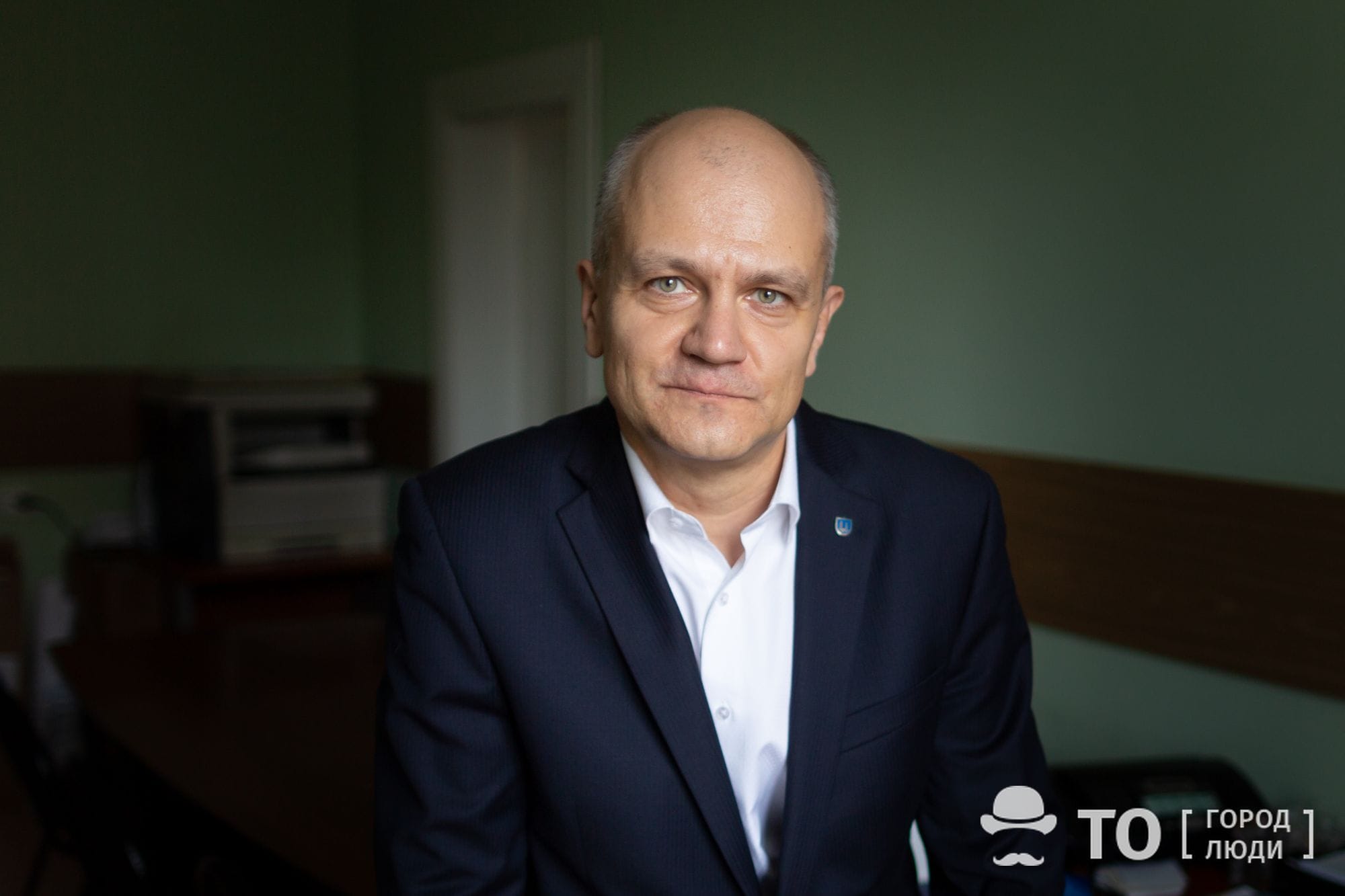
A greenfield remains a greenfield until everyone understands that a certain practice is worthwhile and this is how you should work with students. Then the greenfield becomes brownfield, a green field becomes cultivated. Then a new experiment begins, initiated by life itself.
“The case may be like this: you receive a signal from your partners in the market that there are prerequisites for a breakthrough in some area,” Evgeny Lukov explains. “Say, a serious shift towards solar energy or 5G communications is expected. How you should train specialists for new markets, which often don’t even exist yet, is unclear. So, this is an experimental site. As soon as it comes clear, that’s all; it is not a greenfield anymore. That is, greenfield implies a situation where uncertainty and challenge appear.”
Experiments are vital during the transition periods, and these periods, according to the Dean of the FIPN, come with increasing frequency. Perhaps, this will result in the greenfield area being expanded to the whole university.
“There is an opinion that the university is ceasing to be what we think of it today,” Eugeny says. “It will carry few of the existing functions; instead it may become a place for assembling resources and talents. We cannot deliver a cabin of the latest Boeing to the university. We cannot deploy a laboratory with the latest technology for every task that arises. But such things exist somewhere out there. So we build relationships with partners and we tell them ‘We shall provide you with the specialists you need, and you, on your terms and conditions, shall provide us with a Boeing cabin’. Moreover, it does not matter, for the university, where this cabin is located: in the same city or across the ocean.”
According to Lukov, the concept of the university as a constantly reassembled entity is likely to survive. Just as science has become an endless frontier where discoveries never end (according to the metaphor of Vannevar Bush, advisor to Theodore Roosevelt), so the greenfield in education may become a place of permanent experimentation.
